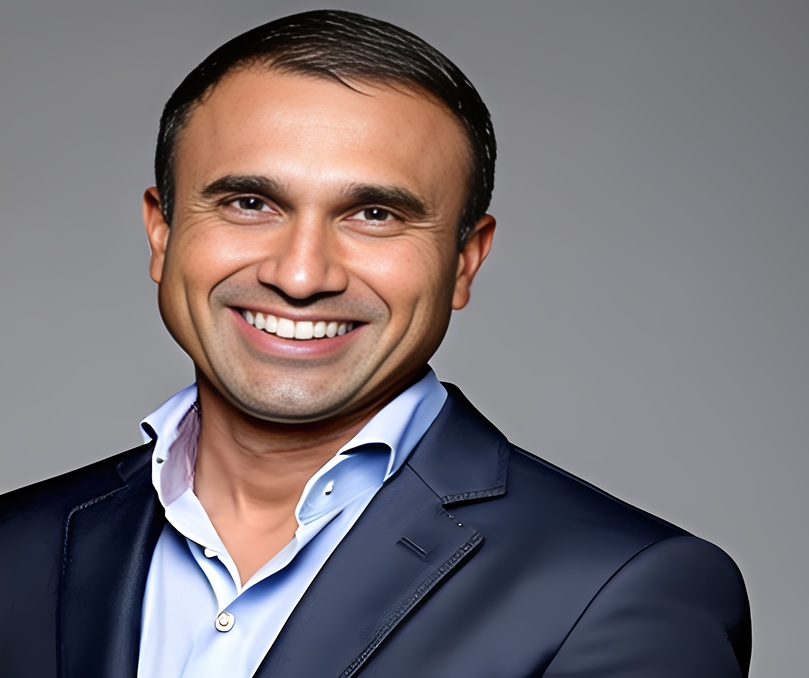
How can mental health counselors support the hospital?
Whenever it comes to the field of mental health, people can be supportive in many different ways. They might work to reduce triggers in the life of the affected person, might connect them with resources and people who can help them, or they might work to ensure that the symptoms of mental health are taken care of. A mental health counselor can do a lot that normal people can’t do when it comes to helping out patients. Additionally, they can support the staff of the hospital as well.
However, there are a lot of different patients and staff members in many hospital settings, and it is a good idea to know how to support all of them as a mental health counselor. Here’s what mental health counselors (or prospective ones) need to know about keeping everyone’s mental health on the rise!
What is a mental health counselor?
A mental health counselor is a trained professional who treats all aspects and symptoms of mental health illnesses. They help people focus on promoting healthy lifestyles, overcome their triggers, and restore their mental health to what it was before the mental illness emerged. Mental health counselors also focus on having conversations with patients and staff. They want to discuss symptoms and treatment options with people who are suffering, and in some areas, they can even diagnose and provide medical treatment for mental illnesses.
Many mental health professionals use psychotherapy to help clients understand their feelings, identify what could be causing them, and teach healthy problem-solving skills. Psychotherapy can include cognitive behavioral therapy (CBT), psychodynamic therapy which will focus on emotions, and interpersonal therapy which connects personal interactions and psychological symptoms.
How are they different from a psychologist?
When comparing what a mental health counselor and a psychologist do, the services they offer are very similar. However, psychologists tend to have a doctorate such as a PhD or PsyD. This doctorate takes a very long time to achieve, but once they have it, they can receive all sorts of training to work on both academic research and clinical practice.
However, mental health counselors need to have different licensing requirements that change from state to state. For example, they can get an online Masters in Mental Health Counseling from a university like St. Bonaventure. Pursuing this masters at St. Bonaventure University can help professionals for licensure and become a licensed mental health counselor. Graduates can then use their degree to obtain a role where they can treat various mental health conditions like depression, anxiety, eating disorders, PTSD, and various phobias. Depending on the state, they may also be qualified to diagnose mental health conditions. These degrees help counselors serve the needs of their communities, giving them more ways to help people and a higher earning potential
How to support both patients and staff in a clinical setting
There are often three different types of wards in a traditional hospital: the acute patient’s ward, the terminal patient’s ward, and the pediatric patient’s ward. All three wards need different levels of help and support with their mental health, and the mental health counselor will need to find a way to provide it for them.
For many people, a hospital can be a scary place where they don’t feel totally safe, and that can lead to a lot of extra mental health problems. This adds to the already poor mental health that patients often have around the illness or injury that initially brought them to the hospital.
Here is an overview of what all the wards are and how best mental health counselors can connect with the patients and staff to provide support.
What is the acute ward?
The acute medical unit is a short stay ward where patients go whenever they have a serious medical problem, but it isn’t a problem that requires the use and attention of emergency services. These words can make a diagnosis and provide treatment for a condition, and if it does end up getting worse, then they can go to the emergency services for treatment.
But for the most part, patients here will remain under observation in the acute ward for a period of time. Their symptoms and conditions will be treated, and then they will be released when they are deemed fit enough to go home. Even though it is a bridge between other hospital wards and the emergency system, mental health counselors will still find a lot of work to do here.
What does a mental health counselor do in the acute ward?
For the most part, their job involves stabilizing and working with patients. The types of patients who come into the acute mental health ward are typically suffering episodes and emergencies that don’t require a lot of attention. While the other doctors and nurses will administer medication and deal with the immediate effects, mental health counselors will likely be called in to talk to the patients and assess their mental health.
Counselors may work with the patient and their family or caregivers to discover what caused the mental health issue. They can also provide tips to make sure the situation doesn’t happen again or isn’t allowed to escalate to where it did previously. Patients in acute medical wards may need some crisis intervention, but otherwise the counselor won’t need to go much deeper than that.
For the staff working in this ward, the mental health counselor might help them deal with any mental health issues related to their job. Often, patients aren’t scheduled to come into an acute medical ward. Instead, they come in at all hours of the day in various states of emergency. This can be stressful on particularly hard days.
But talking to the staff and helping them work through their thoughts and feelings can help everyone overcome their mental health concerns. Counselors might point out good self-care tips that they can use in the moment and outside of work to maintain a calm state.
What is a terminal ward?
The terminal ward is where people go when they aren’t going to get better. They are focused on managing symptoms, easing pain, and freeing the dying patients from discomfort in their final days. These wards are focused on making life easier for the dying patients, and providing a safe and healthy space where family and friends can say their last goodbyes.
For patients, many of them might be anxious about death or what comes after death. They could be extremely worried about what they are leaving behind, they could worry about their family, or they could be wrestling with regrets.
What does a mental health counselor do in the terminal ward?
In this ward, their job isn’t to help them fix the problem, but instead counselors are there to help them focus on coming to terms with their passing and find some peace. Talking and listening to patients, as well as giving off plenty of reassurance, can be the most helpful guidance a counselor can offer these patients.
It is important for mental health counselors to remember that they cannot fix the problems in the terminal ward. This fact does not make them powerless or any professional, but it does allow them to focus on being a source of comfort. Sometimes people who are about to pass on need someone to talk to, and counselors are well-placed to be that person.
The staff of a terminal ward are grappling with death frequently. Maybe some of them have seen death every single day for decades, or others who are new may be seeing someone they grew a bond with die for the first time. Some staff members form bonds and friendships with their patients through the treatment of their symptoms, and they go through legitimate grief when these patients pass on. It is a highly rewarding but emotional role in the healthcare industry.
Again, counselors will need to talk and listen to the staff members who come to them for help and healing, because they might need someone to talk through all of these emotions and feelings with. Grief is a powerful, long lasting, and layered thing. It won’t all be fixed in one go and sometimes time is all that is required. Counselors shouldn’t be afraid to work with the staff for the long haul and check in to make sure they are doing okay.
What does a mental health counselor do in the pediatric ward?
As sad as it is, not all children in the pediatric ward of the hospital are there because of physical maladies. They might be suffering from mental health issues as well. They could be suffering from anxiety, depression, symptoms related to ADHD, and other issues related to stress or trauma. Children can suffer mental health issues for many reasons, and they will need counseling just as much as adults.
Mental health counselors will need to talk to the child and help them figure out what their triggers are and what is causing those problems for them. It can be a bit harder talking to a child versus an adult, especially if they don’t have the words to express how they feel. But counselors shouldn’t be afraid to keep working on it. Children’s brains are constantly growing and developing, and they have got the resilience to overcome mental health if they are willing to help them.
For the staff, mental health counselors will need to work with them and provide support for their own mental health. Many staff members will have soft spots for children. They also might have struggled with or are currently battling their own unrelated mental health issues. As nurses are highly trained, they likely already know how much mental health can impact their lives, and they don’t want that to affect their work performance or be put onto children. A little mental health support for pediatric nurses can go a long way to helping them provide the kindness and light-hearted support that children often respond well to.
Providing the best support possible
A mental health counselor will need to provide support for patients and staff across these three wards and throughout the rest of the hospital. They will all come to the counselor with different reasons for needing help, and the support the counselor can provide is tailored to the individual. Here are some of the best ways mental health counselors can make sure they support the people who need them at the hospital.
Focus on CBT
Many people suffer from a mental illness or disorder, and then find that they are responding to that disorder. For example, they might feel anxious and suffer an anxiety attack, and then isolate or do another potentially unhelpful behavior in an attempt to calm down.
For many mental health counselors, CBT is used to help people get a handle on their behaviors and the patterns that can have them stuck dealing with the same mental health experiences repeatedly. Human brains are very pattern focused, and if a negative behavior is repeated frequently, it becomes a habit.
During a bout of anxiety, depression, or another stressful episode, individuals delve into habits that feel good in the moment but actually don’t help in the long run. For example, depression often leads to isolation, which only enhances feelings of loneliness in the long run.
But a good response to depressive behavior is to reach out and attempt to connect with people who love and help them. With CBT, counselors can retrain the brain to seek out connections in the midst of depression, so that it can be handled easily. Building new habits that actively seek to treat the mental health condition can be very helpful for patients and staff.
Focus on talking and listening
As people come to the counselor with their various problems, including patients and staff, the best thing the counselor can do is to simply listen to what they need to say. Even if four people have the same mental health condition, all four will have their own stories and reasoning.
The mental health counselor needs to listen to each story and treat each person like an individual whenever they treat them. This will help them form a treatment plan to get through their mental illness. Being able to listen, talk, and ask guiding questions to help the patient talk and share their own story is a skill that counselors must hone.
It can be very easy to simply fall into the pattern of putting people into little boxes based on their condition and turning treatments into a one-size-fits-all approach. But the more the mental health counselor works on listening to each patient, the more individualized help they can provide.
Be preemptive with staff
It can be very easy to focus on treating only the patient’s mental health issues, as counselors work with them and often must talk to a certain number of patients every single day. However, the staff at the hospital may need mental health services too, and it is the role of the counselor to work with them.
Being preemptive when they notice that the staff of the hospital or a certain ward is dealing with higher levels of stress or other mental health problems can help avert a crisis. Mental health issues arise in every profession, and healthcare staff are not immune to them.
So, the counselor should talk to the staff and ask if they want help or if they would like to come for an appointment. If they are willing to come to the counselor and get help, then mental health counselors can work to help them, and the entire hospital runs just that much better.
Mental health counselors support the hospital
Mental health counselors are often the unsung heroes of a hospital. They ensure that mental health problems are treated, and help patients and staff find hope in unlikely places. So, any aspiring healthcare nurses or other professionals who want to help both patients and staff should consider becoming a mental health counselor. Taking on this role allows them to use their skills to make the hospital a better place for both patients and staff. It provides benefits for everyone involved!



